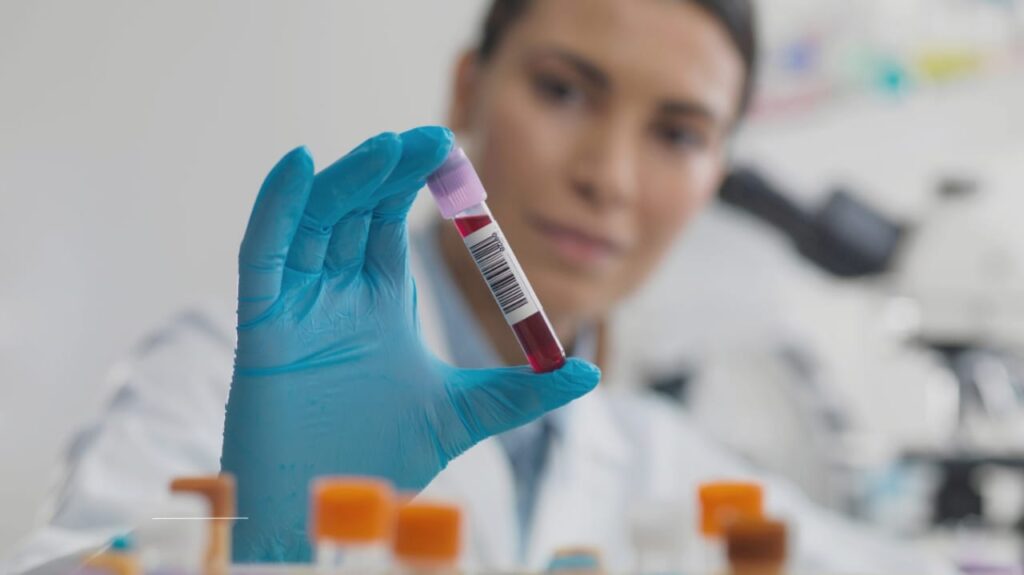
For the estimated 10-15% of adults worldwide living with irritable bowel syndrome (IBS), mealtimes often feel like a gamble. Symptoms like bloating, cramps, and irregular bowel movements can strike without warning, turning everyday foods into triggers. Traditional dietary approaches—like the low FODMAP diet—have provided limited relief, but their one-size-fits-all nature leaves many patients frustrated. Now, a groundbreaking blood test is emerging as a beacon of hope, offering a personalized roadmap to calm troubled guts.
Understanding the IBS Puzzle: Why Diet Matters
IBS isn’t just a minor inconvenience—it’s a complex digestive disorder that disrupts daily life. While stress and gut-brain interactions play roles, food remains a primary trigger. The challenge? No two guts are alike. A food that soothes one person’s stomach might wreak havoc on another’s.
“IBS is as unique as a fingerprint,” explains Dr. Linda Harper, a gastroenterologist at the Mayo Clinic. “For decades, we’ve relied on elimination diets, but they’re time-consuming and often miss the mark.” Case in point: The low FODMAP diet, which restricts fermentable carbs, helps 50-80% of patients initially—but only 25% stick with it long-term due to its restrictive nature.
The Limits of Trial-and-Error: Why Old Methods Fall Short
Current dietary strategies for IBS share a common flaw: guesswork. Patients cycle through elimination phases, food journals, and allergy tests, often with mixed results. Blood tests for food allergies (which measure IgE antibodies) rarely help, since IBS reactions aren’t true allergies. Even stool tests, which analyze gut bacteria, provide incomplete pictures.
This is where the new blood test diverges. Instead of hunting for allergies, it identifies immune responses linked to food intolerances. Specifically, it measures IgG antibodies—proteins the body produces when it perceives certain foods as threats. Elevated IgG levels to foods like gluten, dairy, or eggs suggest those items might be inflaming the gut.
How the Blood Test Works: Science Made Simple
Here’s the breakthrough: This test doesn’t just flag “problem foods.” It analyzes multiple biomarkers to create a tailored eating plan. Alongside IgG antibodies, it assesses:
- Inflammation markers (like C-reactive protein) to gauge gut irritation
- Nutrient levels (e.g., vitamin D, zinc) that influence gut healing
- Genetic markers associated with carbohydrate digestion
A 2024 study in Gut followed 300 IBS patients using this multi-marker approach. After 8 weeks on personalized diets, 68% reported significant symptom relief—double the success rate of standard dietary advice.
“It’s like having a GPS for your gut,” says Dr. Mark Pimentel, a Cedars-Sinai researcher. “Instead of guessing which road to take, the test highlights the clearest path to relief.”
Real Stories: Patients Regain Control Over Their Gut Health
Take Sarah Jennings, a 34-year-old teacher who battled IBS for a decade. “I tried every diet—gluten-free, vegan, low FODMAP. Nothing worked long-term,” she shares. The blood test revealed high IgG reactions to eggs and almonds, foods she ate daily. After cutting them out, her bloating vanished within weeks.
Then there’s James Carter, whose test showed severe vitamin D deficiency—a known IBS risk factor. With supplements and a customized anti-inflammatory diet, his bowel movements normalized for the first time in years.
Beyond Guesswork: How This Test Outshines Old Methods
Traditional IBS diets operate on broad assumptions. For example:
- Low FODMAP assumes all fermentable carbs are bad
- Gluten-free diets target a single protein
- High-fiber plans backfire for those with diarrhea-predominant IBS
The blood test flips this script. By combining antibody data with individual nutrient needs, it pinpoints specific triggers. A 2023 Gastroenterology review noted that personalized diets based on IgG testing reduced symptoms in 72% of patients vs. 49% with standard care.
Not a Magic Bullet: Key Limitations to Consider
While promising, experts urge caution. IgG tests alone can’t diagnose IBS—they’re tools, not cures. False positives are possible, and some patients react to foods without elevated IgG. “This test works best alongside a gastroenterologist’s guidance,” stresses Dr. Harper.
Cost is another hurdle. Currently priced at 200−500, the test isn’t always covered by insurance. However, clinics like Johns Hopkins are running trials to validate its use, which could pave the way for broader insurance acceptance.
The Future of IBS Care: What’s Next?
Researchers are already building on this innovation. Teams at MIT are developing at-home gut microbiome test kits that pair with blood data for even sharper dietary insights. Meanwhile, AI platforms are crunching thousands of patient profiles to predict which foods soothe vs. irritate.
“We’re moving toward a future where IBS management is proactive, not reactive,” says Dr. Pimentel. “Within five years, I expect these tests to be as routine as cholesterol checks.”
Your Next Steps: Navigating the New Landscape
If you’re considering the blood test:
- Consult a specialist: Work with a gastroenterologist or dietitian experienced in IBS
- Verify the test: Ensure it’s FDA-cleared and measures multiple biomarkers (not just IgG)
- Combine approaches: Use test results to inform—not replace—other therapies like stress management
As research evolves, one truth becomes clear: The era of universal IBS diets is ending. With precise tools to decode each body’s needs, patients can finally trade frustration for freedom—one informed bite at a time.
